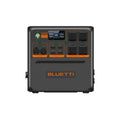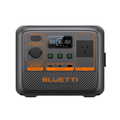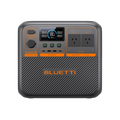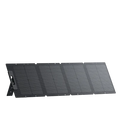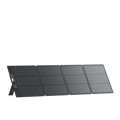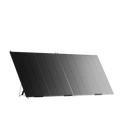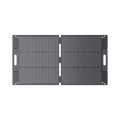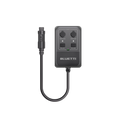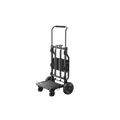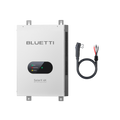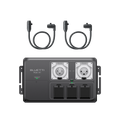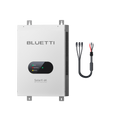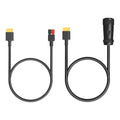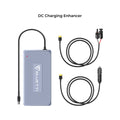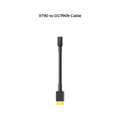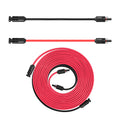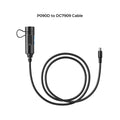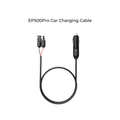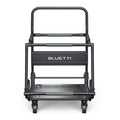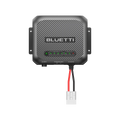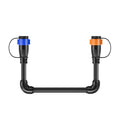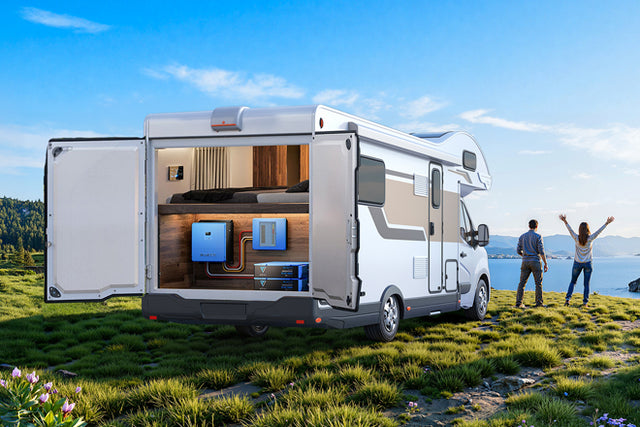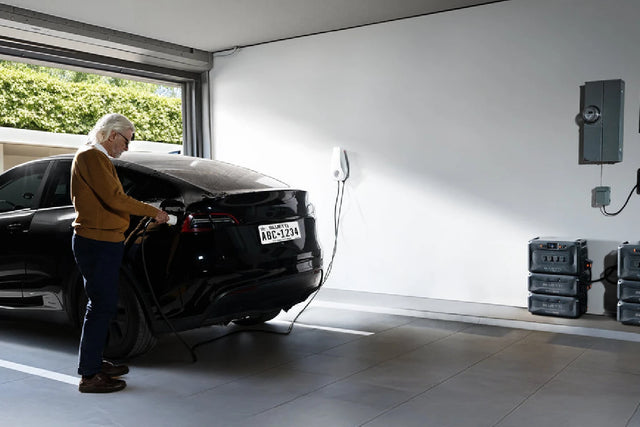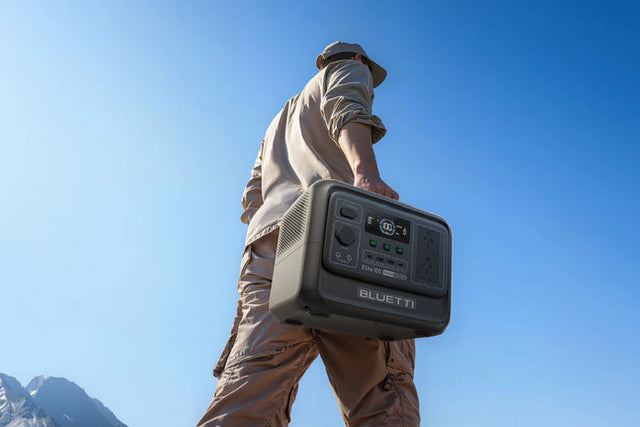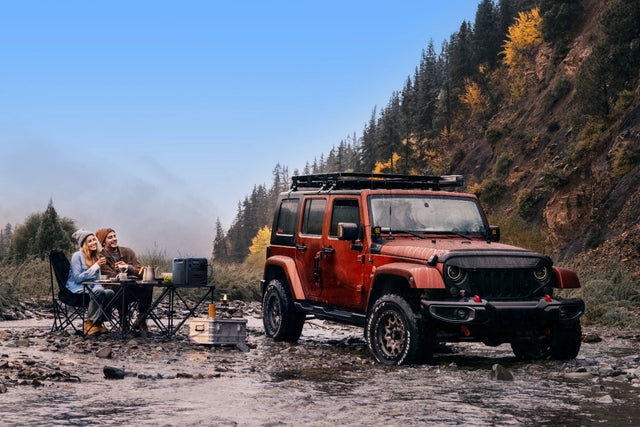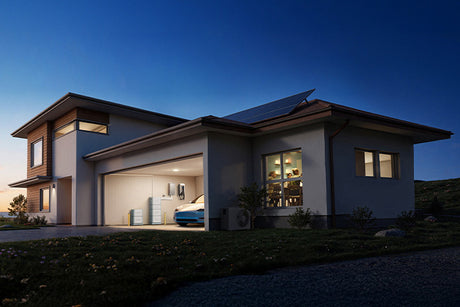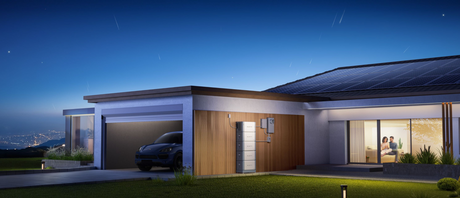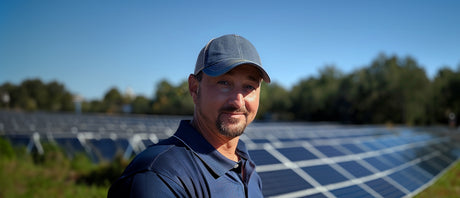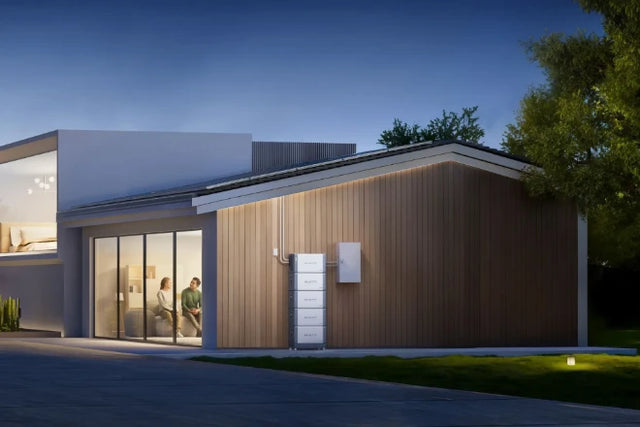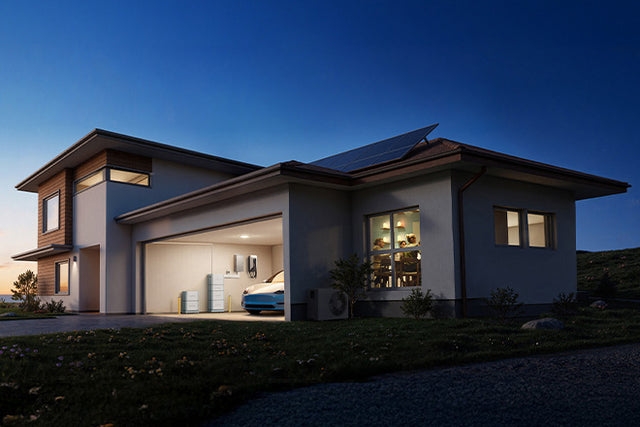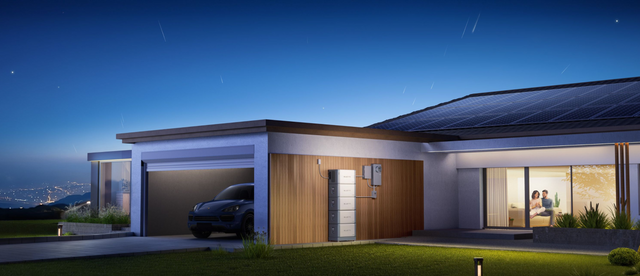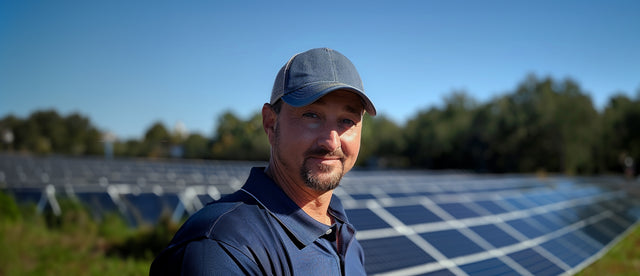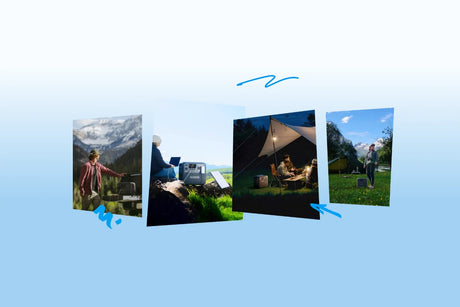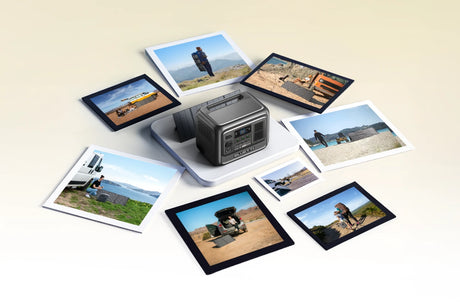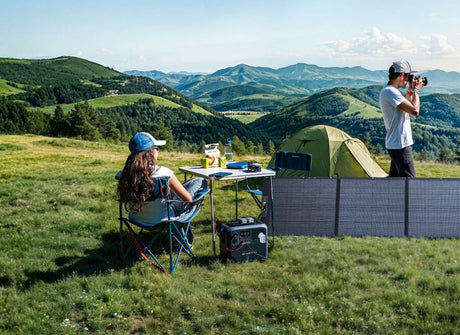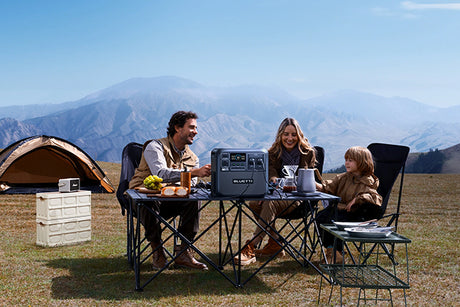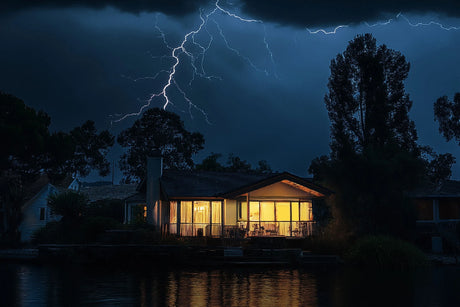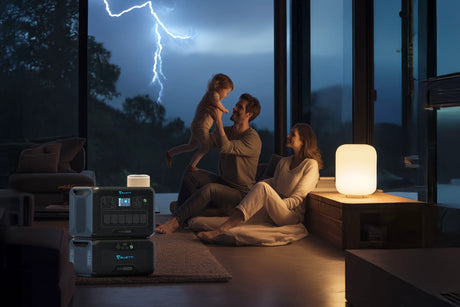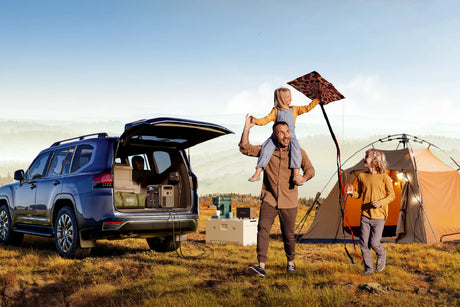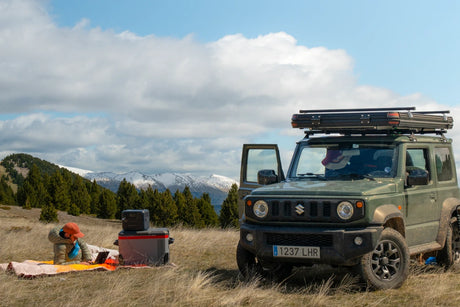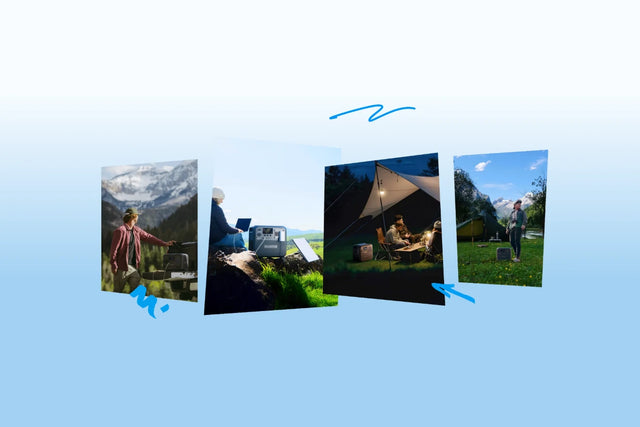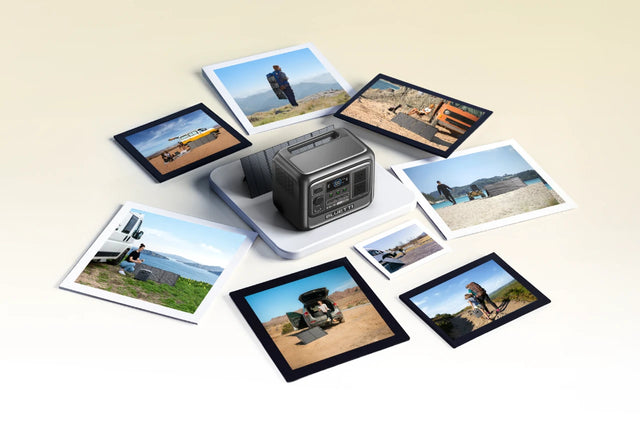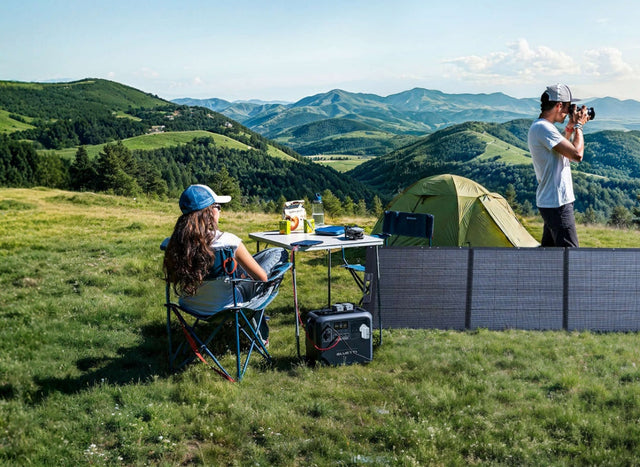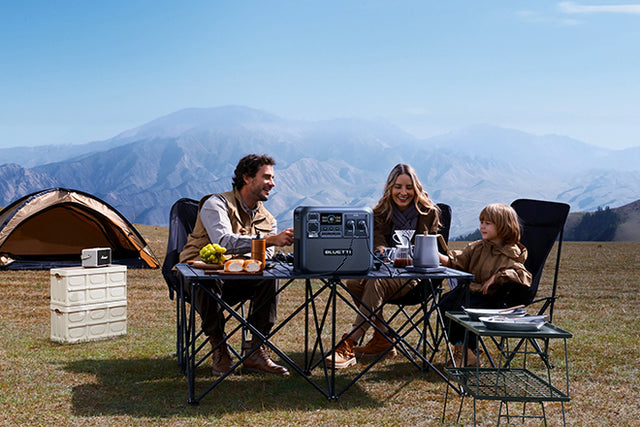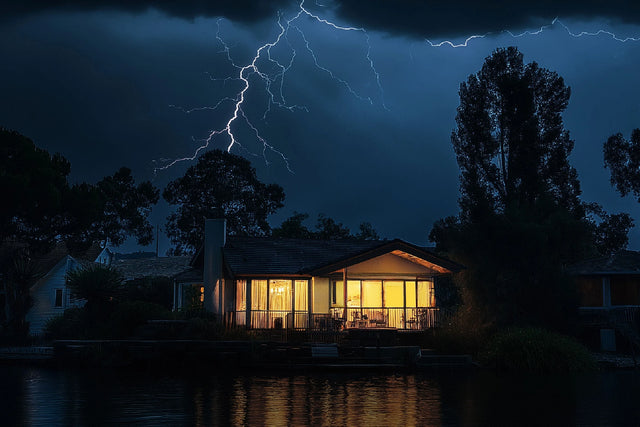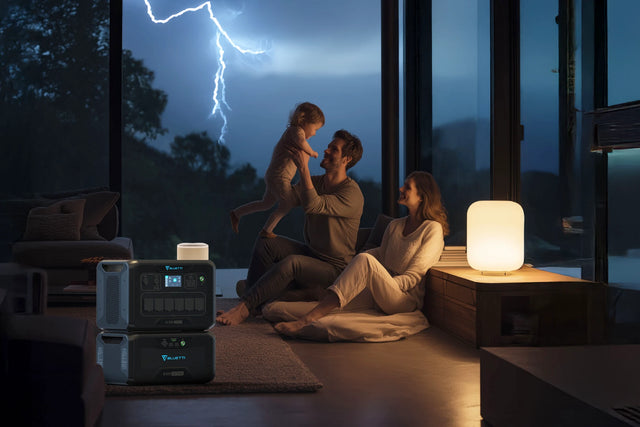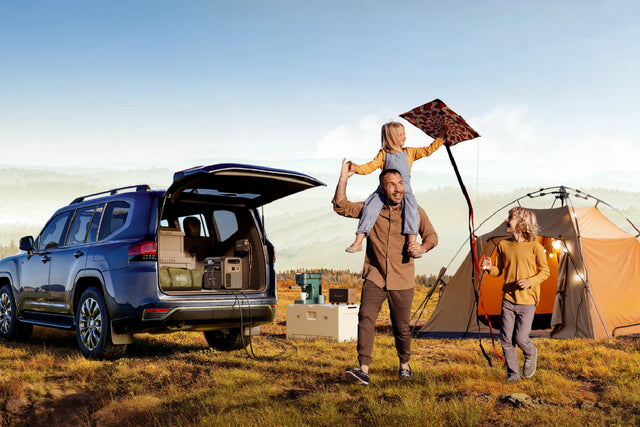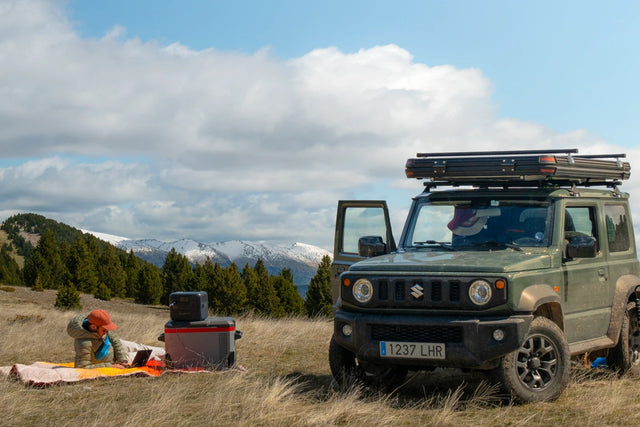There’s just something about the open road, which is exactly why caravan and RV camping has taken off lately. There's an appetite for travel experiences that are not tied down by a strict itinerary or single destination. It goes beyond only adventure because there's a genuine movement towards living more consciously, and off-grid RVing fits right into that.
It's never been easier to get started, with all the great tech and gear innovations constantly coming onto the market. With the coolest solar features and nifty space-saving solutions, today's RVs are making off-grid living available to everyone. Before you take the plunge into this life, you need to check your rig to be sure you will have a safe and liberating off-grid RV experience.
Essential Gear You Need Before Hitting the Road
Make sure you are packed and prepped with the following gear before hitting the road.
Navigation & Safety
When living off-grid, you must make sure you can always find your way, come back home, and signal for help if needed. Use these tools for the best results.
- Offline GPS Tools and Paper Maps: Your phone's GPS may be useful, but in remote areas, you'll often find yourself without cellular service. Buy a good offline GPS app where you download maps to your device. Combine these with paper maps, especially detailed topographical ones, for truly wild landscapes.
- Emergency Beacons or GPS trackers: You need a device to call for help in case of any serious trouble, especially if you are headed far into any wilderness. If you're far from cellular towers, these devices can send distress signals to rescue services with your exact location.
- Dash Cams and Rearview Monitors: A dash camera is useful not only for capturing that scenic drive, but also for getting crucial evidence during a traffic stop or after a hit and run. The clear rearview monitor, especially on larger rvs, creates visibility to avoid accidents in the rear and around the sides of the RV for making turns or backing up into tight spots.

Cooking & Kitchen
Eating well on the road is one of the best things about RV living. Your mobile kitchen should be effective, space-conserving and diverse so it can help you whip up anything. Essential cooking gear you must have includes:
- Portable Stove/BBQ: Lots of RVs come with a built-in kitchen but a portable stove or BBQ comes with flexibility. You have the ability to cook outside of the RV. Choose models that are compact, durable, easy to clean and easy to fuel.
- Portable Kitchenware and Space-Efficient Storage: Space is a valuable commodity in an RV. Seek out gadgets that fold flat such as collapsible pots, bowls and measuring cups, and stackable food containers. Smart storage options, such as magnetic knife strips, hanging organizers and drawer dividers, help reduce the noise and keep your kitchen tidy during travel.
- Fridge/Freezer Combos: Smaller coolers can store perishable foods for short trips, but for long trips, a dedicated fridge/freezer combo is essential. Choose energy-efficient models which can hold a range of consistent temperatures to protect your perishables and stretch out the time between trips to the store.
Comfort & Sleep
You want to be as comfortable and as well-rested as you can be when traveling off-grid. Look out for the following gear when on the road.
- Foldable Mattresses or Sleeping Pods: Go with a good quality folding mattress topper or even have a foam mattress custom-cut for exquisite comfort. In smaller vans, sleeping pods or modular bed systems can make the best use of the space during the day, then become a snug sleeping space come bedtime.
- Blackout Blinds for Restful Sleep: Buy effective blackout blinds or curtains that block out all light. Make your resting environment dark and peaceful.
- Thermal Blankets and Heating Pads: It can get cold surprisingly quickly, even in seemingly warm regions. Thermal blankets are lightweight, yet very warm. For cool evenings or post-hiking sore muscles, a portable heating pad could bring you great relief without the power draw of larger units.
Power & Electronics
Living off grid is essentially creating and managing your own power. It's the most important part about keeping your RV camping lifestyle up and running allowing you to do everything from store your food, to charging up your devices.
- Solar Panels or Alternator Charging: Whether rigid roof-mounted or portable foldable units, solar panels collect sunlight and turn it into power for charging your batteries. Alternator based charging systems (DC to DC Charger) use your engine to charge your house batteries as you drive, converting the wasted energy.
- Backup Batteries or Power Stations: Your batteries power your off-grid power system, running all the energy that was created by your solar panels or alternator. Lithium iron phosphate (LiFePO4) batteries are ideal for marine use due to their effectiveness, durability, and light weight versus lead-acid batteries. Portable power stations come with everything in one package and are available with built-in inverters and different outlets; they're perfect for smaller setups or as a second power source.
If you have shore power or need power to run appliances off your inverter then carry a variety of extension cords, adaptors and multi-chargers. If you have a lot of tech, multi-port USB chargers are a must-have for ensuring your devices are all topped up with minimal packing requirements.

Powering Your Adventure
Your amazing off-the-grid RV adventure can go sour fast without a good power source. Power runs virtually anything you want when living off-grid. Without a strong power solution, your fridge will not keep your food safe and fresh. You will also not be able to prepare hot meals and turn on your lights or fans for comfort.
Additionally, you will not be able to get help in an emergency, check in with your loved ones. If you are using CPAP machines or medical devices, you need a continuous power source. Also, you will not be able to power up your entertainment setups to unwind after a long adventourous day.
Key considerations When Choosing Power Solutions
How many watts do your appliances require per day?
You must compute the wattage of all essential appliances you run such as refrigerators, lights, phone chargers, laptop, water pump etc. Determine how many hours per day you'll be using them. This will determine how large of a battery bank you need and how much charge you should be applying.
Will you be near power hookups or in the middle of nowhere?
If you camp a lot in RV parks with power, you may not backup solutions such as battery and solar. However, if you are going to remote off-grid areas, an independent power system with plenty of battery storage and solid charging is essential.
Are you looking for a silent operation while you sleep?
Revving a loud generator at a serene campsite, especially in the middle of the night is not ideal. If you need power in the night, especially for medical machines, then the only practical solution is a silent power solution.
How to Stay Powered the Smart Way During Off-Grid Camping
Selecting the right power options is the best secret to successfully living off grid. Here are the best options to consider.
- RV Battery System: Although it does supply tapering power for a short while, its run-time is finite and necessitates recharging from your vehicle's alternator with the engine running or AC landline power.
- Solar Panels: Using the sun's energy, solar panels are an eco-friendly, sustainable and quiet way to help replenish your batteries. However, they are only effective when conditions are right since cloudy conditions or shade will greatly diminish their effectiveness.
- Portable Power Stations: They are a one stop shop for batteries, inverters and a variety of output ports in a small unit, making them great for charging smaller electronics and as a backup. They're solar rechargeable, or can be recharged via wall or your car socket.
Smart Power Management Tips
Even with great power sources, smart use adds to your off-grid potential. First, use ECO mode settings on appliances since a lot of new appliances, especially fridges, have specific energy-saving modes.
Second, you must charge your gear when it's sunny. Take advantage of bright days by charging phones, laptops, and camera batteries. Next, you should shut down idle gear overnight. Unplug chargers, shut off lights and unplug any appliances that are not in use to avoid a phantom drain on your batteries.
Don't forget to store all your battery units in one place where they won't get lost. By keeping them inside the van or in the seating compartments, they are not exposed to weather elements and road vibration.

Why the BLUETTI AC200L Is a Game-Changer for RV Camping
The BLUETTI AC200L power backup solution is designed for the open road delivering the ultimate power solution for RV owners. Some of the best design features include:
Unmatched Power and Capacity
This unit pumps out 2,400W of power and can surge up to 4,800W, enough to comfortably power your off-grid life. Boasting a huge 2,048Wh capacity which can be expanded to 7,577Wh, it can offer power support for a few days of luxurious off-grid living.
Easy Installation: Just Plug and Play
With the BLUETTI NEMA TT-30 cable, the BLUETTI AC200L easily connects to your RV’s shore power inlet, delivering reliable AC power to all onboard appliances. For RVs with 12V or 24V house batteries, adding the optional D40 Voltage Regulator enables up to 400W of solar or DC input, compatible with lead-acid, LiFePO4, AGM, and calcium batteries. This setup keeps your essentials like routers, lights, and fans powered, whether living off-grid or heading down the road.

Featuring a reliable, built-to-last LiFePO₄ battery that offers over 3,000 + duty cycles, the BLUETTI AC200L keeps you charged, relaxed and worry-free, whether you're camping near the beach or high atop a mountain forest.

The Best Caravan Camping Spots
When it comes to going off-grid, the location of your perfect caravan camping site makes all the difference. Some of the best choices include:
- National Parks: These places have the best views and some basic facilities. They also have strict generator rules, so with the right non-generator power backup solution you'd fit right in.
- Free Campsites: Great for those living on budget but there are no facilities so you will need a portable power station for all comfort and utility needs.
- Remote/Off-Grid Sites: When you choose these sites, you must come prepared with plenty of solar panels, heavy-duty water storage and an extensive array of backup gear, and be mindful to check road conditions and campsite reviews in advance.
Caravan RV Camping Etiquette
With the freedom of RV camping comes an adopted code of conduct that ensures everyone can appreciate the outdoor peace and magnificence of nature. First, you must be respectful of noise after dark and at night.
At shared rest stops, don't monopolize power outlets or water taps, be mindful of your usage and share. Use biodegradable products and clean up after yourself. Pack out what you pack in, and leave your campsite cleaner than you found it. Use a silent power solution and do not run any piece of loud appliance without permission from other campers.
Final Checklist
Just before you start your caravan RV trip, a final checklist can make the difference between readiness and second-guessing through any situation. First, get your car serviced and the tire pressure topped up. Your power station, like the BLUETTI AC200L, should be charged to full, and your cables checked to your solar panels for immediate deployment.
Don't forget the essentials such as food, water, and an emergency kit. These should be prepped and ready to grab from the get-go. Finally, make sure your navigation systems are in order, with downloaded maps and booked campsites all verified.
Frequently Asked Questions
What has driven the popularity of off-grid RV camping?
RV camping satisfies a growing desire for a flexible, mobile way of travel that offers a connection with nature.
What are the absolute essentials for off the grid camping with an RV?
You need navigation tools, an emergency beacon for safety, cooking gear, sleeping gear and a backup power solution like BLUETTI AC200L.
How can I best control power off-grid?
Start by adding up your wattage needs by day, using ECO modes, charging during peak solar hours and turning off idle appliances. It's also critical to prioritize silent sources of power such as solar and battery banks.
What are some important off-grid camping etiquette best practices?
Read the rules, you must always respect the noise limits, especially during the night. Don't monopolize communal resources such as outlets or water areas. Also, use biodegradable products and clean up after yourself to keep your campsite spotless.


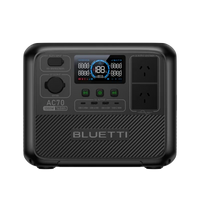
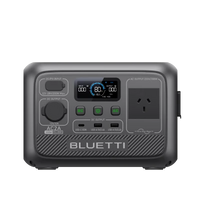
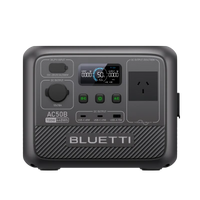

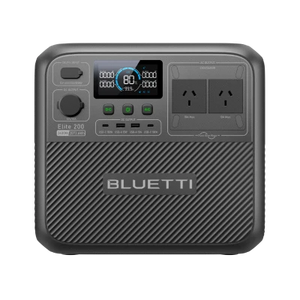
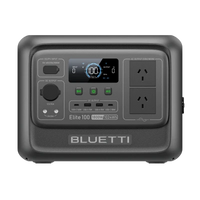
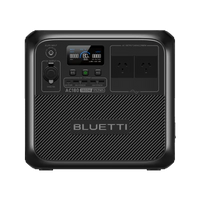
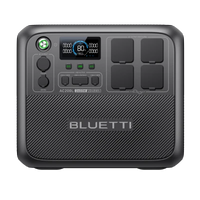
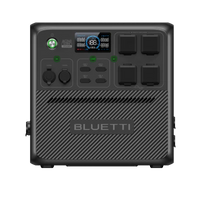
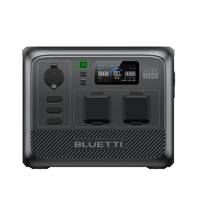
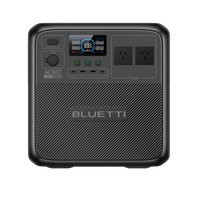


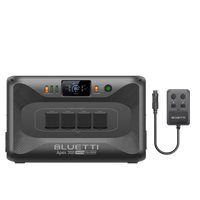

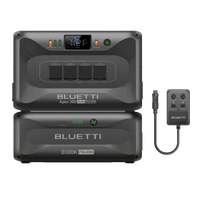
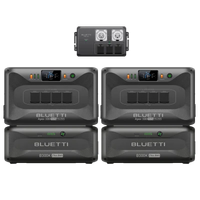
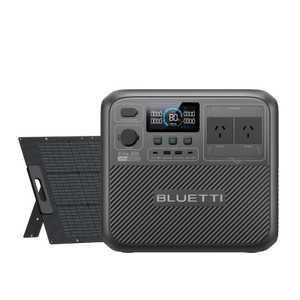
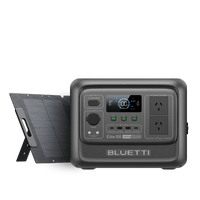
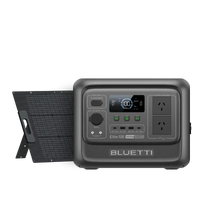
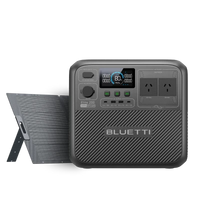
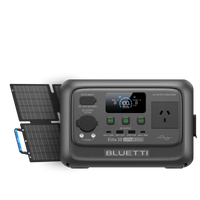
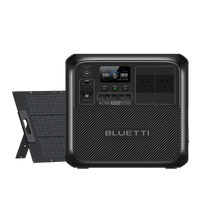
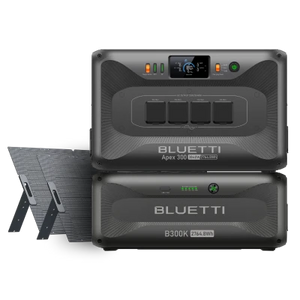
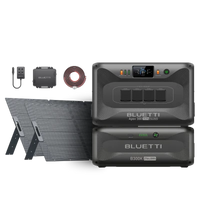
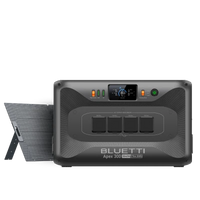
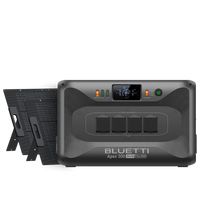
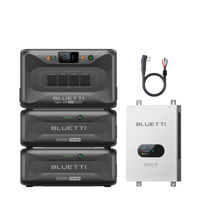

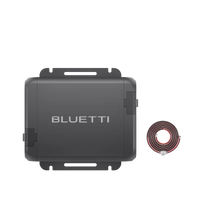
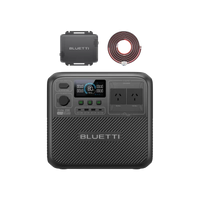
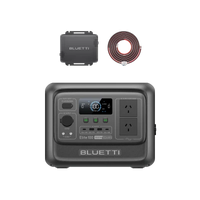
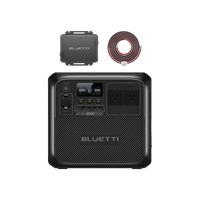
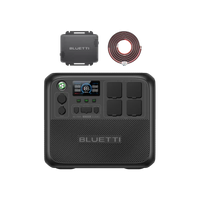
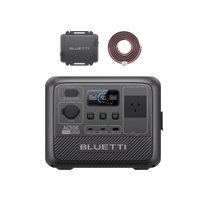
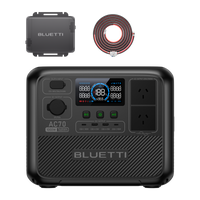


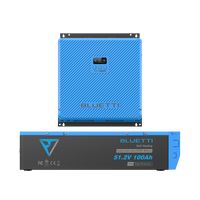
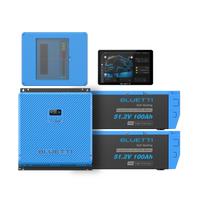
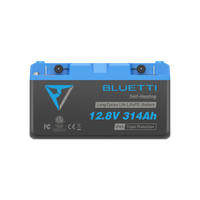
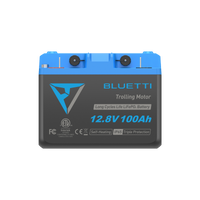
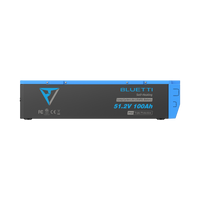
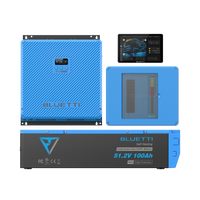
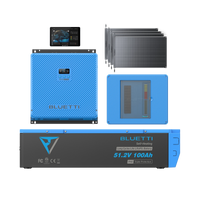
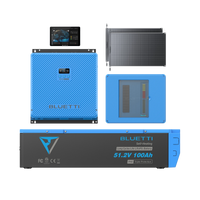
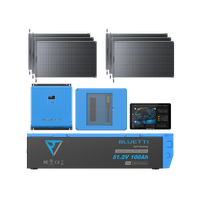
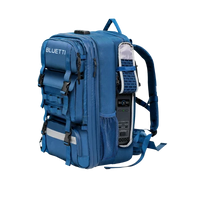
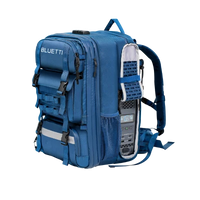

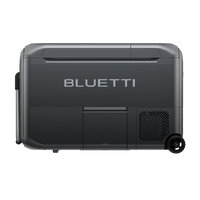
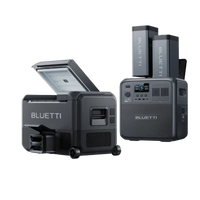
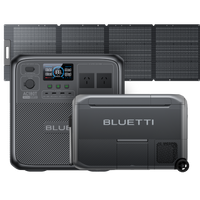
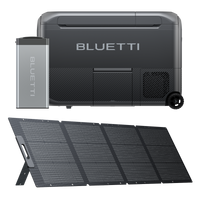
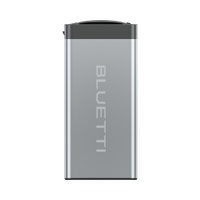
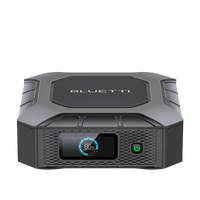
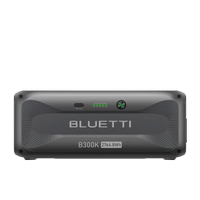

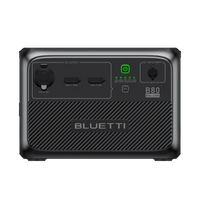
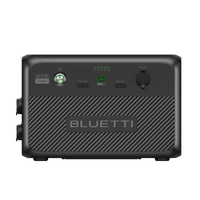

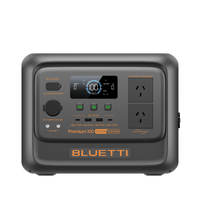
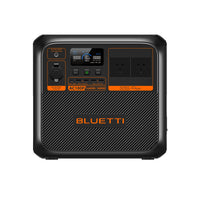

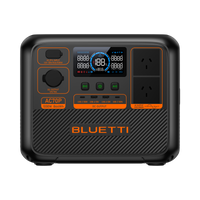
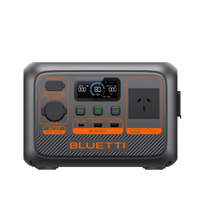
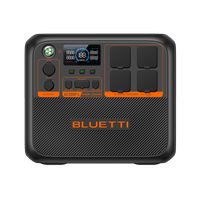
![[Phased Out] BLUETTI B80P Expansion Battery | 806Wh](http://www.bluettipower.com.au/cdn/shop/files/202310025B80P_2000-2000px_4_4caa0c1c-4dab-4272-9e9b-2b7507e5bd81.jpg?v=1713777870&width=200)
![[Phased Out] BLUETTI B210P Expansion Battery | 2,150Wh](http://www.bluettipower.com.au/cdn/shop/files/2_08cf9ef3-03a4-4489-b641-d3edb8094896.webp?v=1716016566&width=200)
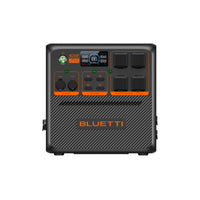
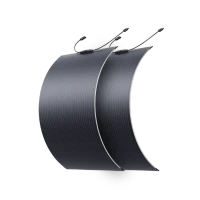
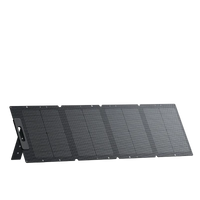
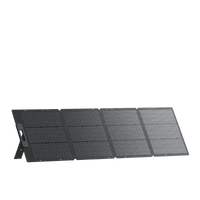
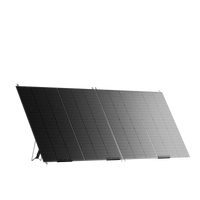

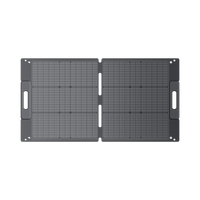

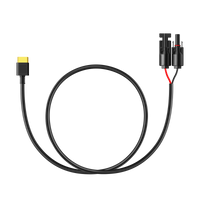
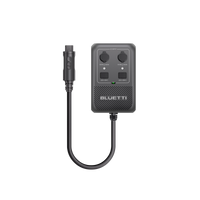
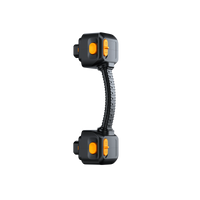
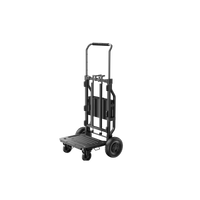
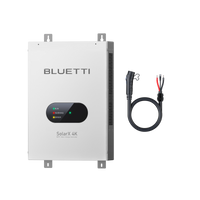
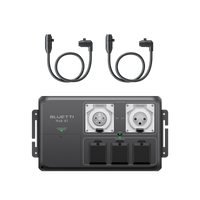
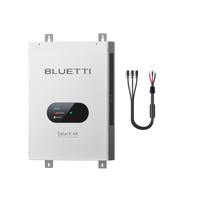
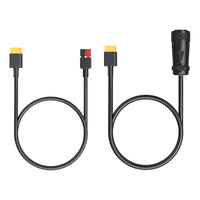
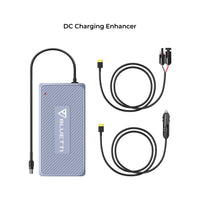

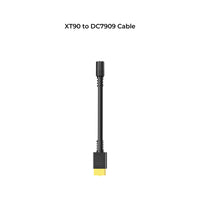
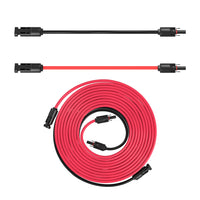
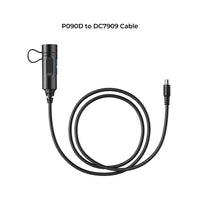
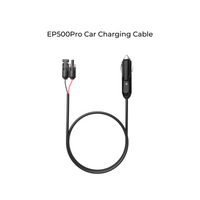
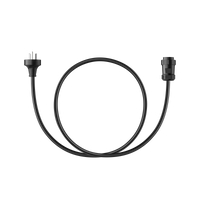
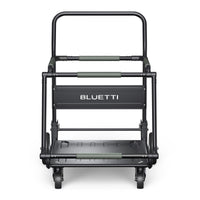
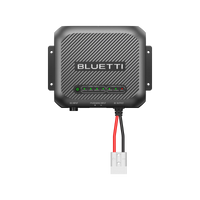
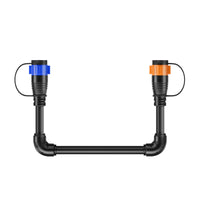



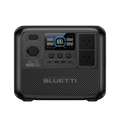
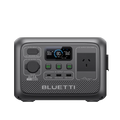
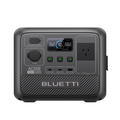


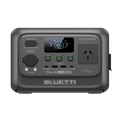
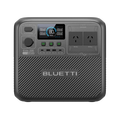
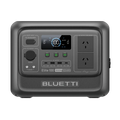
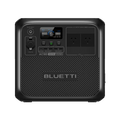
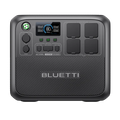
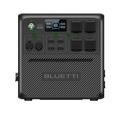
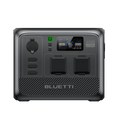
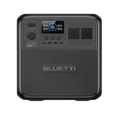


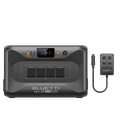

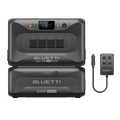
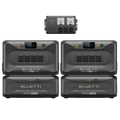




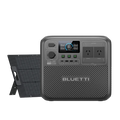
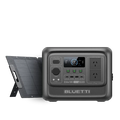
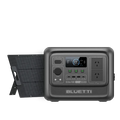
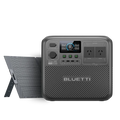
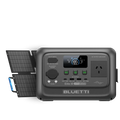
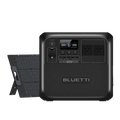
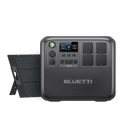
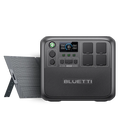




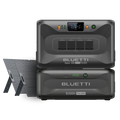
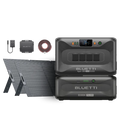
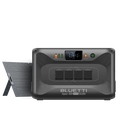
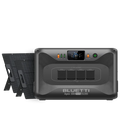
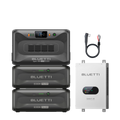


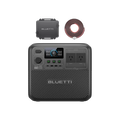
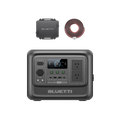
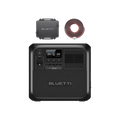

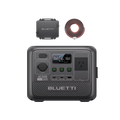
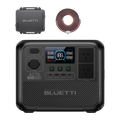
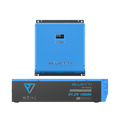
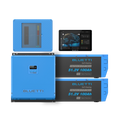
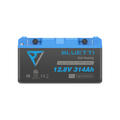
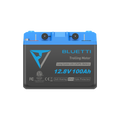




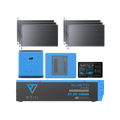
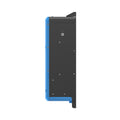
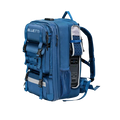
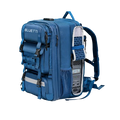

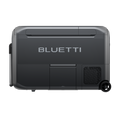
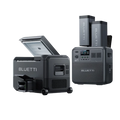
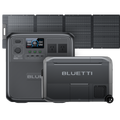
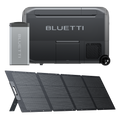

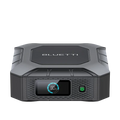
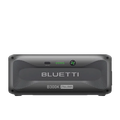

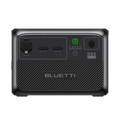
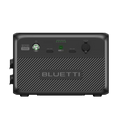

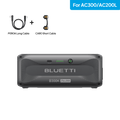
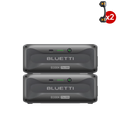
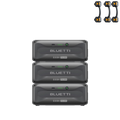




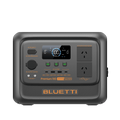
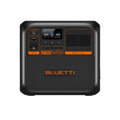

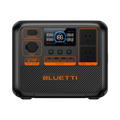
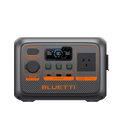
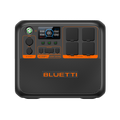
![[Phased Out] BLUETTI B80P Expansion Battery | 806Wh](http://www.bluettipower.com.au/cdn/shop/files/202310025B80P_2000-2000px_4_4caa0c1c-4dab-4272-9e9b-2b7507e5bd81.jpg?v=1713777870&width=120)
![[Phased Out] BLUETTI B210P Expansion Battery | 2,150Wh](http://www.bluettipower.com.au/cdn/shop/files/2_08cf9ef3-03a4-4489-b641-d3edb8094896.webp?v=1716016566&width=120)
